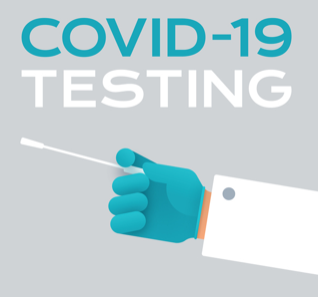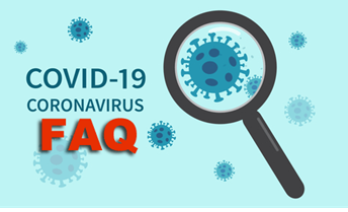FAQ’s
What is a Rapid COVID Test?
This test is a nasal swab that tells you in a short period of time if you have been infected with COVID-19. The accuracy of this test is limited, meaning that while a positive result means that there is a high likelihood that you have COVID-19, a negative test does not eliminate the possibility of infection. If you had a direct exposure to COVID-19, it is still very important to quarantine for 14 days from exposure, regardless of test result. A confirmatory PCR test may be recommended if your antigen test is negative. A PCR test is a nasal swab test that will be sent to an external lab for further study. PCR tests take longer to produce results, but they produce more accurate results. A rapid antigen test may not be sufficient for medical or surgical clearance, please check with your healthcare provider.
Rapid antigen testing may be recommended by the provider evaluating you if you currently have COVID symptoms.
What is a PCR COVID Test?
The PCR/nasal swab test will tell you if you currently have COVID-19. A person with symptoms of COVID-19 is a candidate for this test. The results will come back either positive or negative. There is up to a 30% chance that the test may be falsely negative. Therefore, a negative test does not eliminate the possibility that you currently have the infection or that you had the infection in the past.
What is the risk of my child getting sick with COVID-19?
Children can be infected with the virus that causes COVID-19 and can get sick with COVID-19. Most children with COVID-19 have mild symptoms or they may have no symptoms at all (“asymptomatic”). Fewer children have been sick with COVID-19 compared to adults. However, children with certain underlying medical conditions and infants (less than 1 year old) might be at increased risk for severe illness from COVID-19. Some children have developed a rare but serious disease that is linked to COVID-19 called multisystem inflammatory syndrome (MIS-C).
What are the symptoms that covid 19 can cause?
People with COVID-19 have reported a wide range of symptoms – from mild symptoms to severe illness. Symptoms may appear 2-14 days after exposure to the virus. If you have fever, cough, or other symptoms you might have COVID-19.
Can someone test negative then later test positive on a viral COVID-19 test?
Yes, it is possible. You may test negative if the sample was collected early in your infection and test positive later during this illness. You could also be exposed to COVID-19 after the test and get infected then. Even if you test negative, you still should take steps to protect yourself and others.
When should I seek emergent care for symptoms?
Look for emergency warning signs* for COVID-19. If someone is showing any of these signs, seek emergency medical care immediately:
Trouble breathing
Persistent pain or pressure in the chest
New confusion
Inability to wake or stay awake
Bluish lips or face
*This list is not all possible symptoms. Please call your medical provider for any other symptoms that are severe or concerning to you.
Call 911 or call ahead to your local emergency facility: Notify the operator that you are seeking care for someone who has or may have COVID-19.




